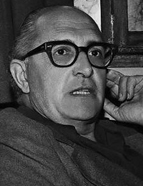

In one of those texts, he underlines that by limiting literary studies to linguistic factors and failing to culturally integrate language, personalities, biographical and historical circumstances in an in-depth philosophical approach and a historical analysis, the scholar will be deprived of research in which a relationship is established between his own world view and conception of history and those implicit in the work of any author under study (Dialécticas Teóricas [Theoretical Dialectics], p. 27). In “Sobre o Perspectivismo Histórico-Literário” [“On Historical and Literary Perspectivism”], an essay that is both an apology of history and a criticism of the researchers who are focused on understanding the present while dismissing the past, he argues that the man who confines himself to the present and turns his back on the past succumbs to the fallacies bequeathed by the past to the present, and therefore “provincially” believes that his village is the whole world (Idem, p. 205). He also states that the literary historiography of the previous century, devoid of a vision of the past, embraced evolutionist methodologies and criteria, therefore confining itself to simplistic periodisations, rigidly dating literary movements or schools which were often contemporary to each other. (Idem, p. 206). Furthermore, he mentions that in addition to the inaccurate periodisation and listing of authors, such literary review lacked a historical vision and insisted on exalting the most acclaimed literary figures while relegating talented artists to oblivion, and compartmentalising authors in different literary genres when in fact they cultivated a variety of genres. This defence of the literary-historical perspective serves as a pretext to summarise some of the reasons that lead us to believe that Sena and historiography share common convictions. Firstly, he believed that a period could only be understood in light of all its manifestations. Secondly, he refused to simplify the past or approach it as being less complex than the present, and to view artistic “schools” as separate individuations. Finally, he rejected the idea that history could teach us how to live the present (Idem, p. 210). By way of conclusion, it may be said that Jorge de Sena’s essayistic, poetic, and fictional work is central to historiography and that it is more than fitting to consider this great figure of Portuguese letters a historian of literature and culture who should be studied by all those seeking to understand how art, particularly literature, has evolved (and reacted to political and social conjunctures) in Portugal and in Europe across the centuries.
